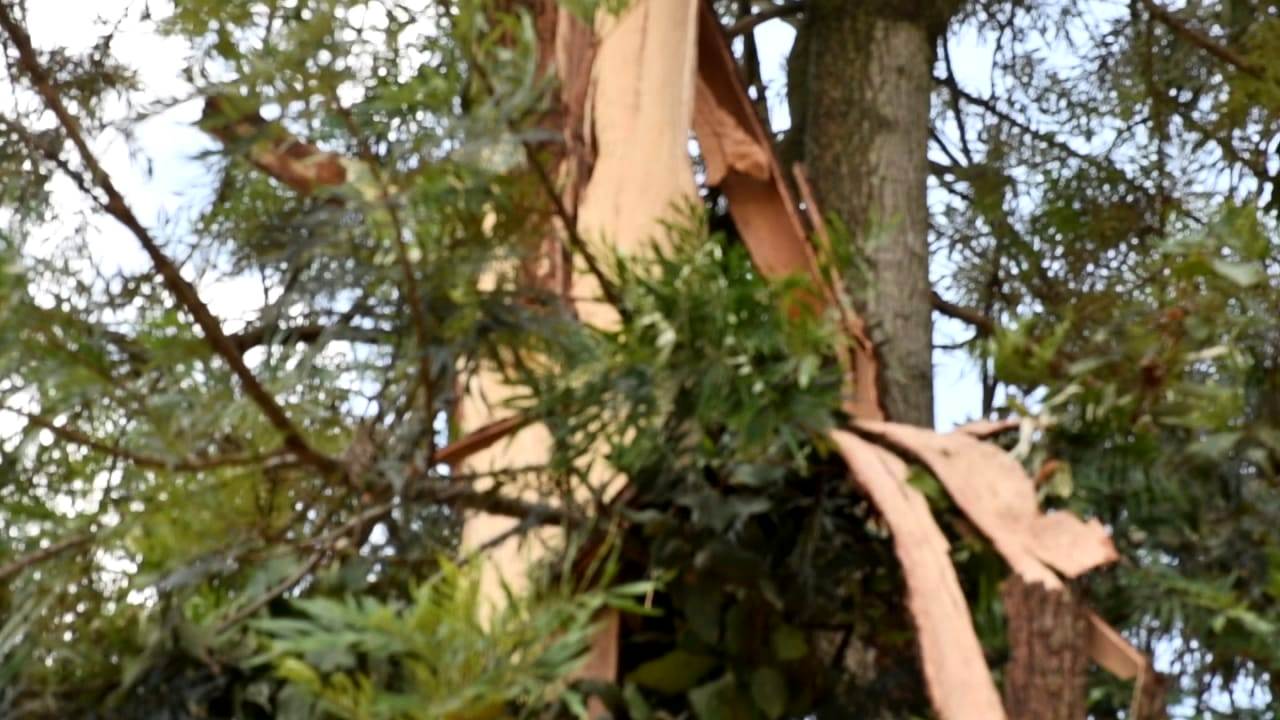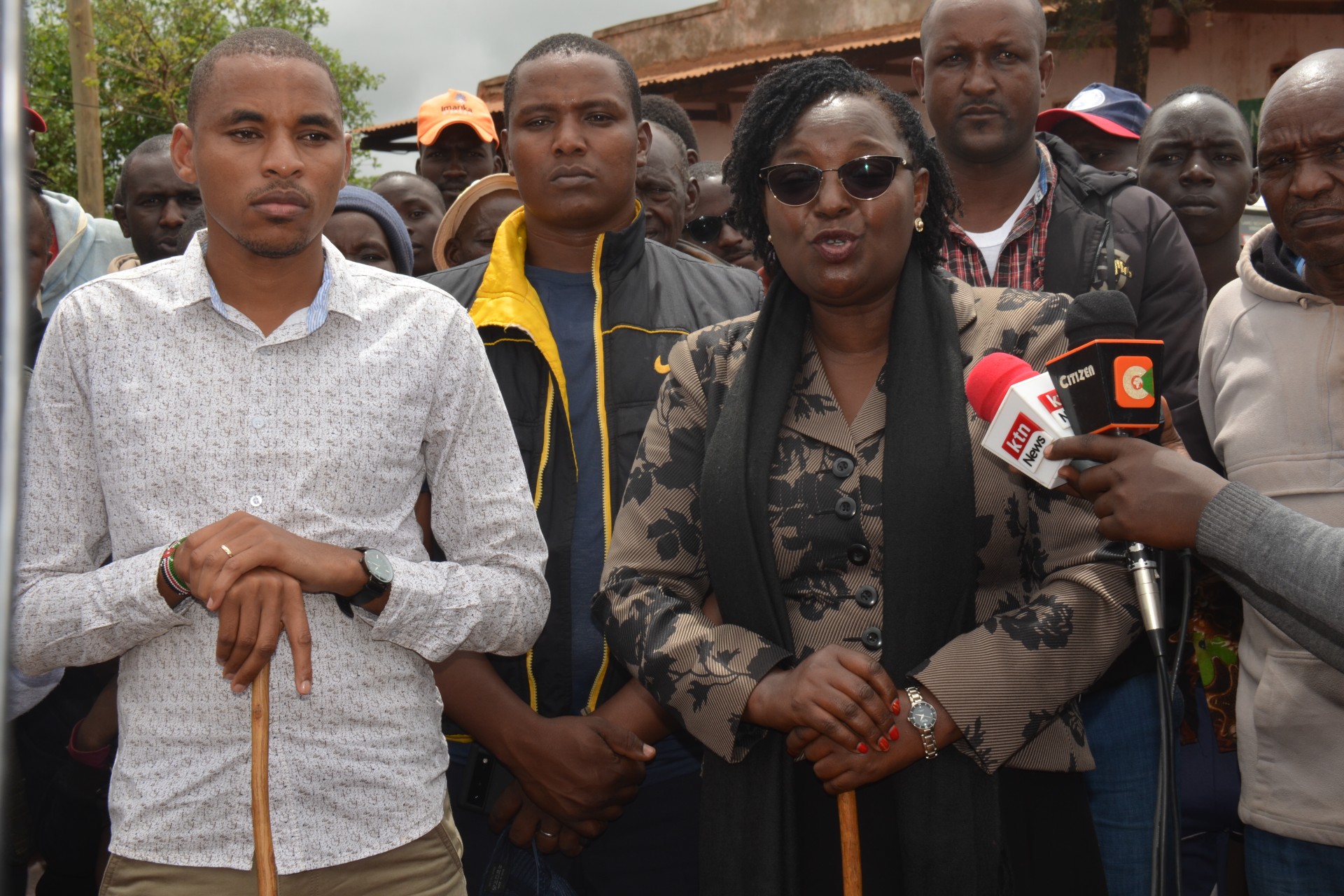The Government has put in place mechanisms to address the ongoing drought situation affecting most parts of the country including the 25 counties listed as dire and in severe need.
In the vast Kajiado and its surroundings, hope is dwindling as drought has depleted green cover for the pastoral community.
Animals have left their dens to wander in the region including town centers in search of any chewable matter to supplement their daily feeds.
The livestock owners are clinging on diminishing hope following the drought situation threatening extinction of the precious cultural heritage and investment.
Livestock feed is proving unaffordable as costs in agrovets keep rising by the day. Home-made alternatives are now being sought like locally assembling maize stalks where a bucket of chopped dry maize stalk cost Sh 300 while green silage of the same retail at Sh 400 which is unbearable.
The maize stalks being sold in Kajiado town have been sourced from the fertile highlands of Nyandarua, Gilgil and other areas which are far off from Kajiado increasing the price due to cost of fuel and transportation.
26 years old Jackson Koboi, a bodaboda rider turned animal feed dealer, says the business is booming and he now enjoys good returns from the sale of animal feed which forced him to drop his bodaboda business to cash in the lucrative fresh livestock feeds from far places.
He says he buys in bulk from the highlands for approximately 15,000 per acre, and transports to Kajiado and neighbouring counties selling shoulder size maize stalks for sh300 and grinding the same for sh100 earning him 400 per shoulder size maize stalks.
Jackson said the business is paying well and has since bought three motorcycles this week making him a role model youth entrepreneur employing his jobless peers.
He says he saw and experienced the problem with the cattle he owns including his family and neighbour’s and sought a solution to search and avail affordable local animal feeds which is now rewarding well.
Koboi has since bought a maize stalk slicing machine which facilitates reduction of big stalks to sizable ones to ease in transportation by farmers to far off places using passenger public means of transportation.
The young entrepreneur says he is facing competition from other people who have taken up similar jobs after seeing his success but he accepted the challenge but not ready to give up yet before the rains come.
He says he sweeps the market area after a day’s job picking the remnants from maize stalks and ferrying them to his livestock back at home.
He notes over 100 Lorries sell the stalks of maize for livestock keepers every day in Kajiado where able livestock farmers buy up to a lorry for their livestock at once.
Emma Njeri, a Kajiado outskirts resident observed that the drought situation is dire and more interventions need to be employed to cushion people and their cattle from extinction.
“I cannot afford to feed both children and cattle during this difficult period,” says Emma, noting that if nothing is done it will be catastrophic.
Emma confessed she had over 50 goats and 10 cows but now she is left with 15 goats and 3 cows due to the ongoing drought.
She sympathized with pastoralists in the interior remote areas saying the reality is worse for them having lost almost all livestock.
She said though some interventions have been made by the Government and Kenya Redcross, more needs to be done to rescue the hopes of the livelihoods of the Masai and other communities affected by the ongoing drought.
Peter Ole Munka, a livestock farmer from Sajiloni said buying the shoulder sized maize stalks is a loss since it can only feed two cows per day at rationed scale.
Ole Munka said this is saddening since culturally the Masai keep large numbers of cattle imagining how much one will spend to feed his flock of an average 30 cattle.
He added that parents lack food and school fees to feed and educate their children since their income from livestock sale has hit a lowest record since a cow that sold at Sh 10, 000 now costs only Sh 1,500.
Peter says cattle are weak for lack of food with many dying every day from starvation calling on God and the Government for rains and more assistance respectively.
He called upon the County Government of Kajiado and the national government to fulfill the promises they made to the people during campaigns and not to put their own selfish interests first.
A spot survey in Kajiado town and its environs revealed that a bale of hay that was retailing at sh150 has now doubled to sh300.
The drought situation has forced passengers in PSVs to get used to sitting next to stacks of sacks of animal feed when pastoralists shop for their cattle as it has become the norm shopping for families.



